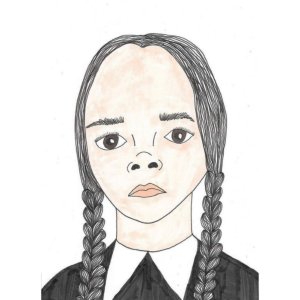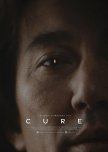Cette critique peut contenir des spoilers
C U R E
C—URE
C—YOU'RE
SEE, YOU'RE
SEE, YOU ARE...
"Who are you? Tell me about yourself."
Kiyoshi Kurosawa's Cure is first, a procedural crime thriller, but foremost, a philosophical and psychological rumination of the societal condition. It is more arthouse and atmospheric than the usual sort of procedural thriller in mainstream cinema. It does not serve a complete and absolute answer. Rather, it gives you questions and clues which lets you think and connect the puzzle, yourself.
In the film, we comprehend that the killer perceives the detective as someone who is not cured.
"The detective or the husband? Which is the real you? Neither one is the real you. There is no real you."
The detective is filled with frustration due to his societal responsibilities. This is his prison since his choices are bounded by societal expectations and not because it completely reflects his own authentic decisions. This prison is what created and worsened the disease in his humanity. He cannot be his real self. He is not cured.
"You’ll be born again, just like me."
Perhaps, the killer wants to free the people from society by letting them truly know and express their profound fears and desires. This is how he will cure them and just like that, they will all be reborn.
It might be true that knowledge is power and to completely know ourselves can be the utmost cure to the disease of humanity and society. Though, does letting our desires and fears own us creates the perfectly authentic self? Or are we just letting ourselves be a slave to them?
In the end, the detective has become the "cured", himself. He didn't repress his fears and desires anymore, but he has become mesmerized by them. Indeed, they have become himself, completely dictating his decisions which also led him to dictate others.
Ironically, the detective has become the society that imprisoned and frustrated him for so long; thinking about what solely makes sense to him and imposing it to others believing that it's the true and ultimate way to be freed and cured.
Just like the long-time, lingering question whether hypnosis is a true science or a pseudoscience: is it really a means to cure or control? Is the detective cured or controlled? Is he curing them or controlling them?
C—URE
C—YOU'RE
SEE, YOU'RE
SEE, YOU ARE...
"Who are you? Tell me about yourself."
Kiyoshi Kurosawa's Cure is first, a procedural crime thriller, but foremost, a philosophical and psychological rumination of the societal condition. It is more arthouse and atmospheric than the usual sort of procedural thriller in mainstream cinema. It does not serve a complete and absolute answer. Rather, it gives you questions and clues which lets you think and connect the puzzle, yourself.
In the film, we comprehend that the killer perceives the detective as someone who is not cured.
"The detective or the husband? Which is the real you? Neither one is the real you. There is no real you."
The detective is filled with frustration due to his societal responsibilities. This is his prison since his choices are bounded by societal expectations and not because it completely reflects his own authentic decisions. This prison is what created and worsened the disease in his humanity. He cannot be his real self. He is not cured.
"You’ll be born again, just like me."
Perhaps, the killer wants to free the people from society by letting them truly know and express their profound fears and desires. This is how he will cure them and just like that, they will all be reborn.
It might be true that knowledge is power and to completely know ourselves can be the utmost cure to the disease of humanity and society. Though, does letting our desires and fears own us creates the perfectly authentic self? Or are we just letting ourselves be a slave to them?
In the end, the detective has become the "cured", himself. He didn't repress his fears and desires anymore, but he has become mesmerized by them. Indeed, they have become himself, completely dictating his decisions which also led him to dictate others.
Ironically, the detective has become the society that imprisoned and frustrated him for so long; thinking about what solely makes sense to him and imposing it to others believing that it's the true and ultimate way to be freed and cured.
Just like the long-time, lingering question whether hypnosis is a true science or a pseudoscience: is it really a means to cure or control? Is the detective cured or controlled? Is he curing them or controlling them?
Cet avis était-il utile?


















